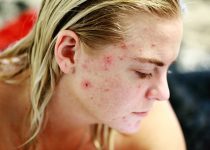Discover How to Cure Acne: The Benefits of a Plant-Rich Diet
Discover How to Cure Acne: The Benefits of a Plant-Rich Diet
Acne is a common skin condition that affects millions of people worldwide. While many turn to topical treatments and medications, there’s growing evidence that a plant-rich diet could serve as an effective solution. In this blog post, we’ll delve into how a diet abundant in fruits, vegetables, and whole grains can contribute to clearer skin. We’ll explore the science behind this dietary approach and offer actionable steps to incorporate more plant-based foods into your routine.
Understanding Acne: Causes and Challenges
Acne is a skin condition characterized by red pimples, often on the face, due to inflamed or infected sebaceous glands. Several factors contribute to acne, including hormonal imbalances, genetics, stress, and diet. According to the American Academy of Dermatology, acne affects up to 50 million Americans annually, making it the most common skin condition in the U.S.
The Role of Diet in Acne
The connection between diet and acne has been a topic of research for decades. While not everyone with acne is affected by the same dietary factors, studies suggest that high-glycemic foods and dairy products can exacerbate the condition. Conversely, a plant-rich diet might help reduce inflammation and improve skin health.
The Science Behind a Plant-Rich Diet and Acne
A diet rich in plants provides numerous benefits for skin health. Plants are packed with essential nutrients, antioxidants, and fiber, which all play a role in maintaining a healthy complexion. Let’s explore these components in detail:
Antioxidants: Nature’s Skin Protectors
Antioxidants are compounds that fight free radicals, unstable molecules that can damage skin cells and lead to inflammation. Fruits and vegetables, especially those rich in vitamins A, C, and E, are potent sources of antioxidants. For example, berries, leafy greens, and citrus fruits are excellent choices for boosting antioxidant intake.
Fiber: The Gut-Skin Connection
Fiber is crucial for digestive health, and a healthy gut can positively influence skin health. A study published in the journal Dermato-Endocrinology found a significant link between gut health and skin conditions, including acne. Whole grains, legumes, and vegetables are high in fiber, promoting a balanced gut microbiome and reducing inflammation.
Omega-3 Fatty Acids: Reducing Inflammation
Omega-3 fatty acids, found in foods like flaxseeds, chia seeds, and walnuts, have anti-inflammatory properties. Incorporating these into your diet can help mitigate the inflammation associated with acne. A study in the American Journal of Clinical Nutrition highlighted the benefits of omega-3s in reducing acne severity.
Practical Tips for a Plant-Rich Diet
Transitioning to a plant-rich diet doesn’t have to be daunting. Here are some actionable tips to help you get started:
Start with Small Changes
Begin by incorporating more fruits and vegetables into your meals. Swap your usual snacks for a handful of nuts or a piece of fruit. Gradually increase your intake as you become more comfortable with these new habits.
Experiment with Plant-Based Recipes
Explore new recipes that focus on plant-based ingredients. Websites like Minimalist Baker offer a plethora of simple, delicious, plant-based dishes that even beginner cooks can master.
Focus on Whole Foods
Whole foods are minimally processed and retain their natural nutrients. Opt for whole grains, fresh produce, and legumes over processed alternatives. This shift not only benefits your skin but also supports overall health.
Monitor and Adjust
Every individual’s skin reacts differently to dietary changes. Keep a food diary to track what you eat and any changes in your skin condition. This can help identify specific foods that may trigger acne.
The Impact of Hydration on Skin Health
While diet plays a crucial role in skin health, staying hydrated is equally important. Water helps flush toxins from the body and maintains skin moisture. Aim to drink at least eight glasses of water daily, and consider hydrating foods like cucumbers and melons as part of your diet.
Success Stories: Real-Life Experiences
Nina, a 25-year-old from Los Angeles, struggled with acne for years. After switching to a plant-rich diet, she noticed a significant reduction in breakouts within months. “I never realized how much my diet affected my skin,” Nina shares. “Focusing on whole, plant-based foods has transformed my complexion.”
Similarly, a study conducted by the Journal of the American Academy of Dermatology found that participants who adopted a plant-rich diet experienced a 50% reduction in acne severity after three months.
Conclusion: Embrace a Plant-Rich Diet for Clearer Skin
A plant-rich diet offers a promising approach to managing acne. By reducing inflammation and supporting overall skin health, this dietary shift can lead to clearer, healthier skin. Remember that lifestyle changes take time, and consistency is key. Embrace the journey towards a plant-rich diet, and enjoy the myriad of benefits it brings, not just for your skin, but for your overall well-being.
Ready to make the switch? Start today by integrating more fruits, vegetables, and whole grains into your meals, and watch how your skin transforms. Your journey to clearer skin begins with the first bite.


